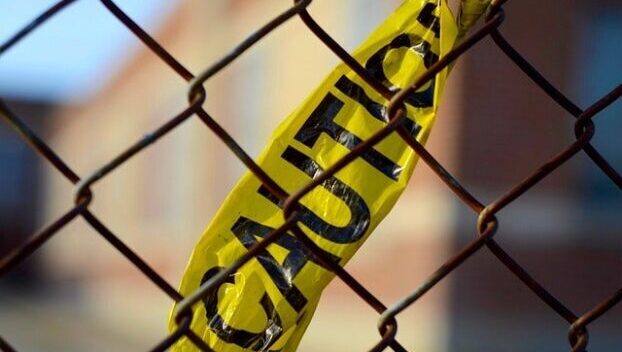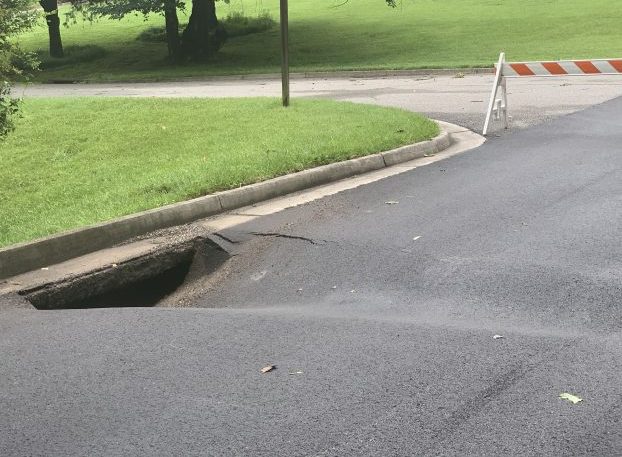Farmville council makes a final decision on land bank proposal
Published 5:46 am Thursday, October 17, 2024
|
Getting your Trinity Audio player ready...
|
The Town of Farmville now has a new way of dealing with derelict houses. By a unanimous decision, the town council adopted the land bank proposal that had been discussed in recent months during their Wednesday, Oct. 9 meeting.
Part of the issue for residents has been the lack of a definition as to what derelict means. Basically, what is the standard the homes have to follow? In the final version of the ordinance adopted by council, it uses the Virginia Code to define what “derelict” means. Specifically, it refers to Section 15.2-907.1 of the Code, which labels a derelict building as “a residential or nonresidential building or structure, whether or not construction has been completed, that might endanger the public’s health, safety or welfare.” In order to qualify as derelict, it also has to meet several criteria. It must have been vacant, boarded up and not lawfully connected to electric, water or sewer service from a utility company for at least six months. In other words, if someone abandoned a property yesterday, it doesn’t qualify as derelict today. The town would have to wait six months to take action under this ordinance. This method also ensures that no currently inhabited houses will be targeted by the land bank. The property has to be vacant for at least that six month period before it can qualify.
That was something raised by one resident at the Oct. 9 public hearing. Prince Edward County resident Jesse Yates was the only person to come speak. While he lives in the county, Yates said he takes care of two properties in Farmville.
Trending
“Boarded up houses, no electricity and stuff like that, you all have the rights to take it down and I support that 100%,” Yates said. “Buf if a family is living in a home and not able to fix it up, that’s the only thing I want you all to just look at and make sure you don’t put some family on the street because they’ve run into hard times or something.”
What is a land bank?
As part of the final ordinance, the council agreed to designate the non-profit Commonwealth Land Bank to handle the role for the town. Here’s a quick refresher as to what a land bank is. In the Virginia Code, Section 15.2 talks about the powers that counties, cities and towns have. If you scroll down to Chapter 75 in that section, it outlines the fact any locality can put together a land bank. A land bank’s main purpose is to take over control of properties labeled as ‘blighted’, run-down or derelict, to renovate and restore the buildings in question. The county or town can assemble a land bank group of their own or appoint a non-profit organization and its governing board to handle the task, as Farmville did here.
Instead of the town condemning and tearing down the property, they can file a lawsuit against the owner, seeking approval from a judge to use a land bank in this situation. The town would be asking the judge to give control of the property temporarily to the land bank, which would act as the “receiver”, that is, the entity assigned to renovate the property and get it up to town standards. The group then sets up a bank account for the property, gets an estimated cost for repair and presents a plan to the judge overseeing the case. The land bank group can then enter into contracts with those who will be making the repairs, while providing monthly reports to the judge as the work goes on.
So one of the bigger questions in a plan like this is where does the money come from? Basically, who pays for the renovations? Under a plan like this, all costs associated with the remediation are paid by the land bank group as they are incurred. Repair costs then become a lien on the property. At the end of the process, once the building has been restored, the owner of the property gets the full bill.
That’s the cost of the remediation, all the repairs done, all the land bank’s fees and any attorney fees from the town. The owner will have a chance to pay all this, but if they don’t, the property can be sold at auction and the fees awarded from the sale.
Can the owner handle repairs?
Before any of that happens, the owner of the property in question is given the opportunity to fix it. They’re informed of the problems with the vacant building. If they can’t or won’t agree to make renovations, then the case goes before the circuit court, where the property owner or “a person with an interest in the property, secured by a deed of trust” has another chance to get the work done.
If they can show the court a plan to do the work, within a reasonable amount of time, then they’ll be allowed to do so. Now if someone presents a plan and fails to follow through, the town can bring them back to court and the owner gets to explain to the judge why they didn’t do the work as promised.






